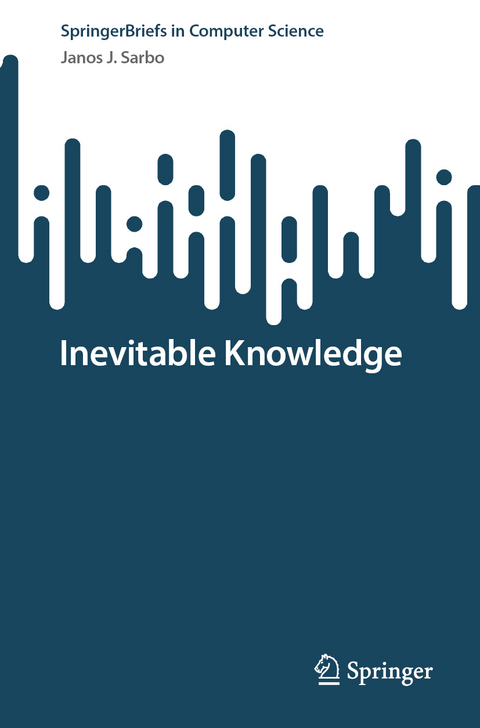
Inevitable knowledge
Springer International Publishing (Verlag)
978-3-031-73460-1 (ISBN)
The Holy Grail of AI is artificial generative intelligence, a computer that can think human-like. However, human thinking is qualitatively more complex than computer calculations. So, the ultimate goal of AI cannot be achieved.
Not quite. This book shows that a model of human-like, meaningful processing can be introduced based on a theory of cognition (how human processing can be abstracted in a series of events), semiotics (what signs are and what kind of distinctions can be communicated by signs), and computer science (how all this can be realized as a procedure). The emerging model offers a solution to the problem of artificial intelligence, not by itself, but in collaboration with the human agent by augmenting its intelligence. But there is more to it than that. Because of the fundamental nature of signs, the semiotic concept of meaning can be transformative for AI research.
The book comprehensively covers several applications, including language processing, analyzing integrative negation processes, and solving mathematical problems. It delves into the intricate characteristics of the meaningful processing problem and the fascinating journey that led to its solution. The book provides insight into the historical background of the problem and the solution, enriching the reader's understanding and engagement. The text is self-contained. All necessary technical terms are explained.
Janos J. Sarbo works at the Institute for Computing and Information Systems (ICIS), Radboud University (Nijmegen, NL). His research focuses on knowledge representation based on a theory of cognition and a Peircean theory of signs. In the past, he did research in various fields of computer science, including compiler construction, natural language parsing, and formal conceptual analysis. He is one of the authors of the book "Knowledge in Formation - A Computational Theory of Interpretation" (Springer, 2011).
Motto.- Acknowledgments.- Prologue.- 1. Introduction.- 2. Knowledge is formed by cognition.- 3. Cognition is formed by brain processes.- 4. Brain processes are formed by sign processes.- 5. Sign processes are formed by categories.- 6. Knowledge is categorial.
| Erscheinungsdatum | 30.11.2024 |
|---|---|
| Reihe/Serie | SpringerBriefs in Computer Science |
| Zusatzinfo | Illustrationen |
| Verlagsort | Cham |
| Sprache | englisch |
| Maße | 155 x 235 mm |
| Themenwelt | Informatik ► Theorie / Studium ► Künstliche Intelligenz / Robotik |
| Mathematik / Informatik ► Mathematik ► Angewandte Mathematik | |
| Schlagworte | Artificial Intelligence • category theory • Human-like Processing • Information Processing • Interpretation • Knowledge Representation • Meaningful Summarization • Natural Language Processing • Peirce • Sign Theory |
| ISBN-10 | 3-031-73460-2 / 3031734602 |
| ISBN-13 | 978-3-031-73460-1 / 9783031734601 |
| Zustand | Neuware |
| Informationen gemäß Produktsicherheitsverordnung (GPSR) | |
| Haben Sie eine Frage zum Produkt? |
aus dem Bereich


